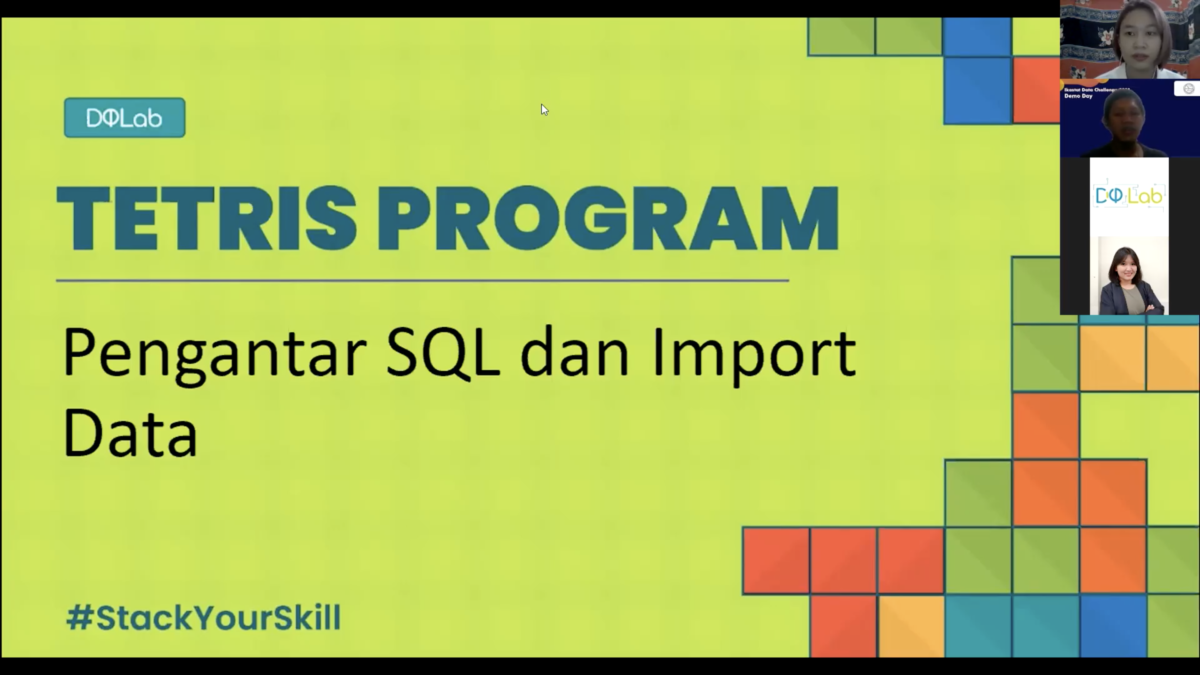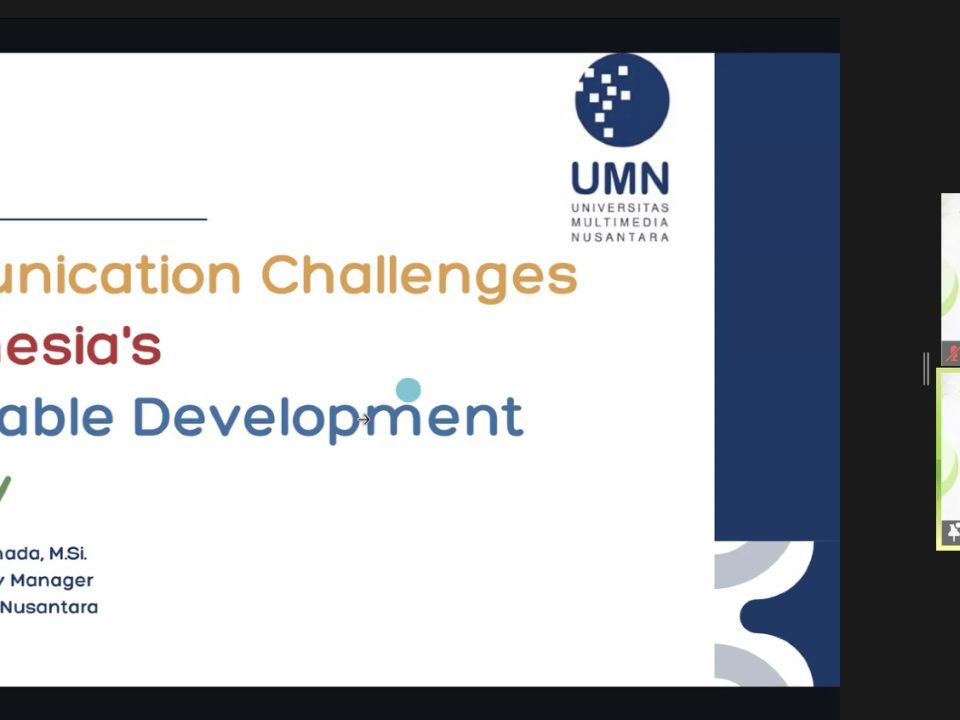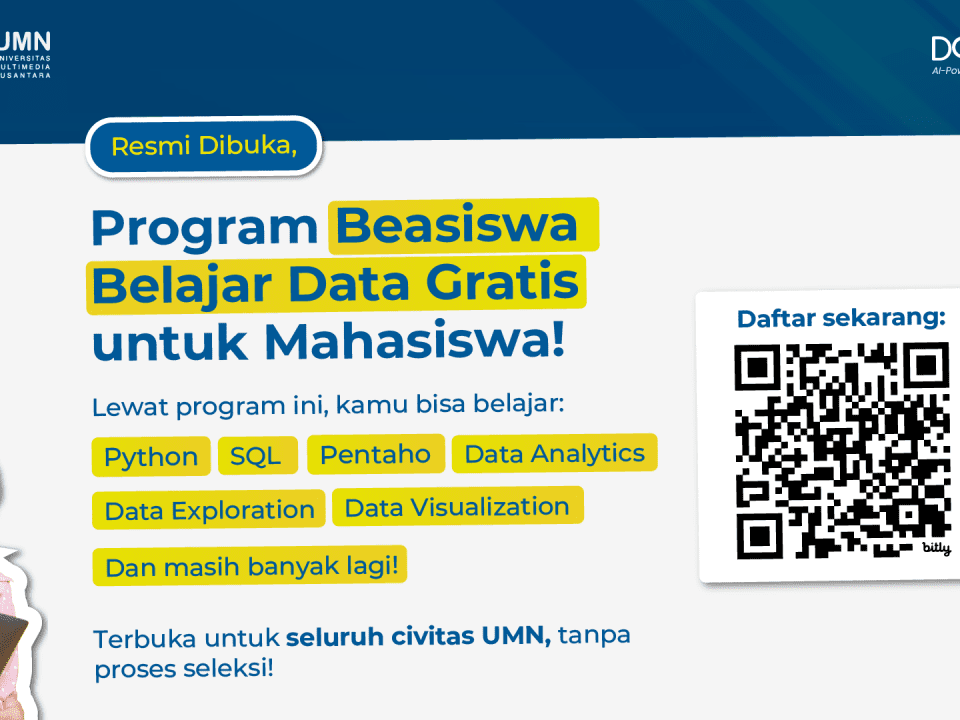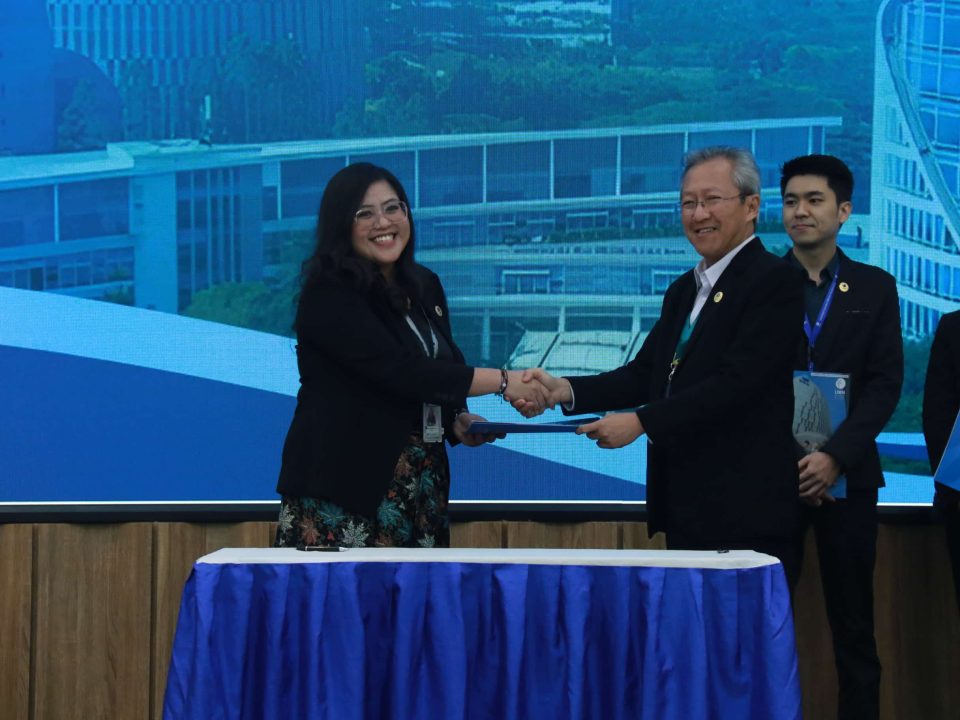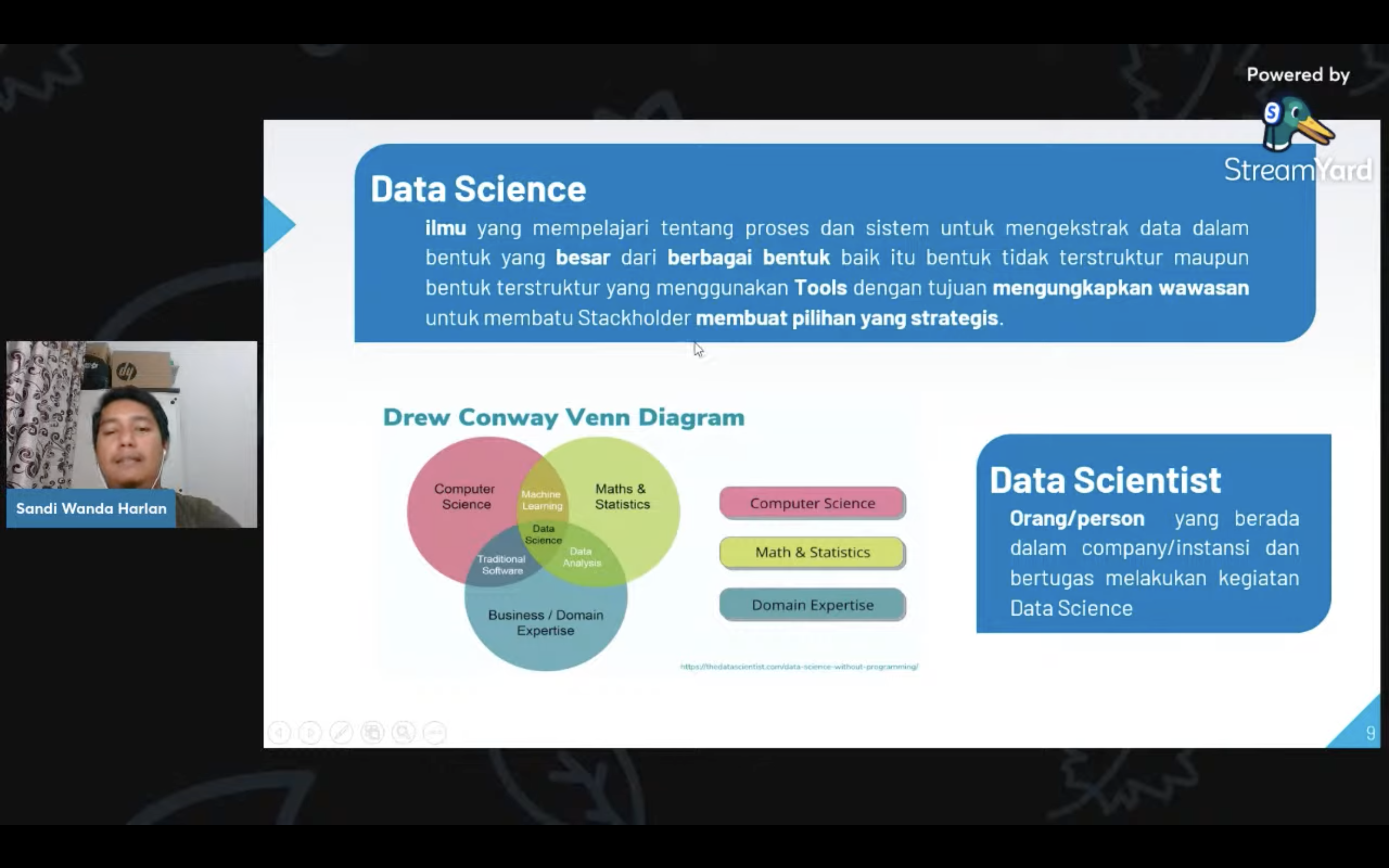
Tips and Tricks of Learning Data Science for Non-IT Beginners
March 7, 2022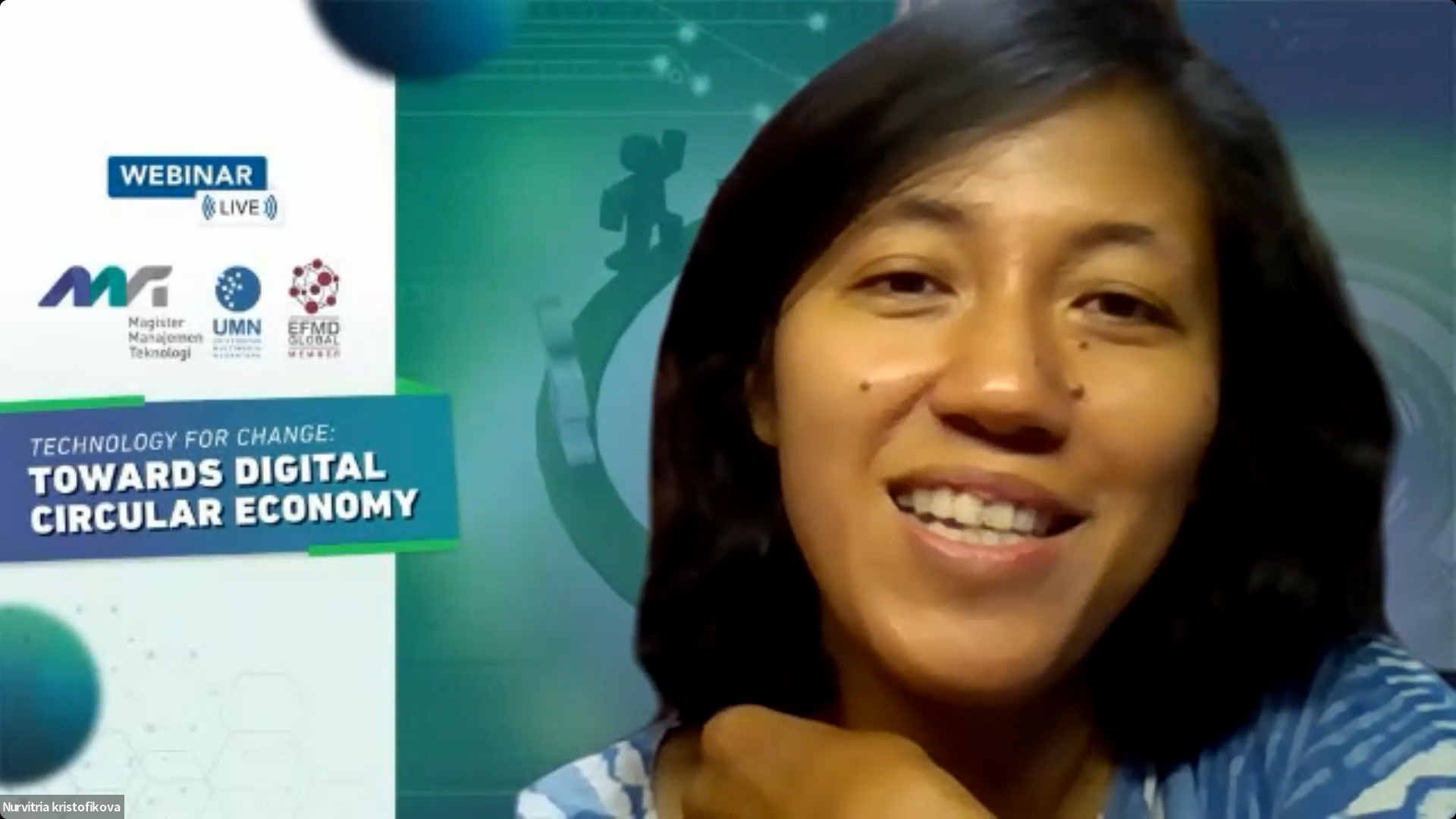
MMT UMN Takes the Initiative to Share Knowledge About Circular Economy
March 7, 2022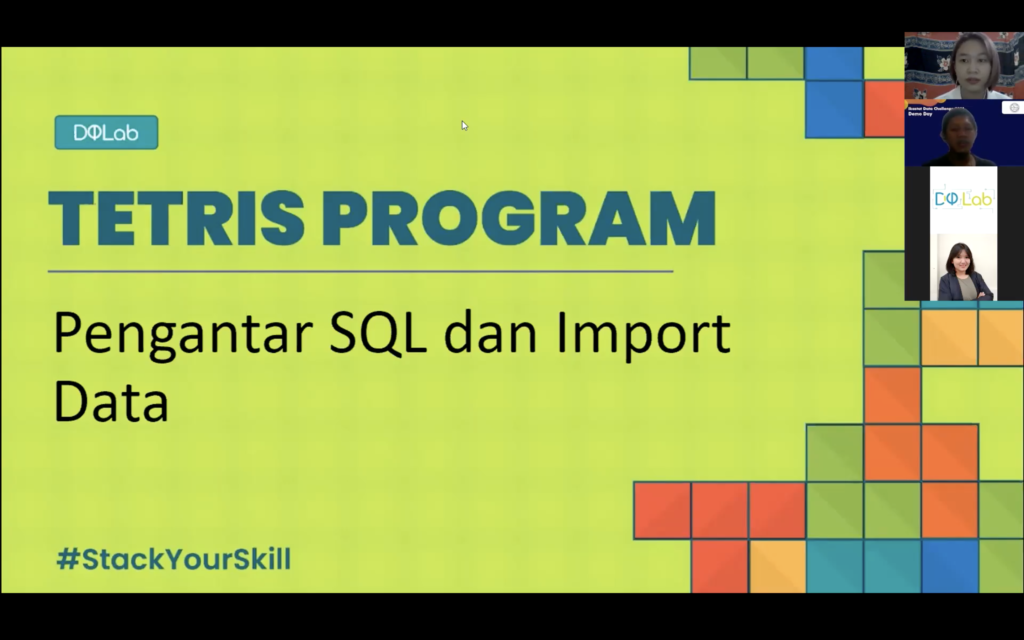
(dok. DQLab)
TANGERANG – Seeing the need for talents working with data in Indonesia, DQLab offers a scholarship Tetris Program themed “#StackYourSkill” on Tuesday (22/02/22) virtually. The Tetris Program offers scholarships to study data science intensively, build a portfolio, and get internships with well-known companies such as Tokopedia, Kompas Gramedia, Kawan Lama Group, Rupa-rupa, Niagahoster, Kitabisa and Xeratic. At the same time, DQLab also invited Muhammad Farhan Novianto (Aan), a Business Intelligence Analyst at Bukalapak, to talk about Structured Query Language (SQL).
Aan expresses the importance of SQL. The first few tests to become a data practitioner are SQL, programming using R/Pyton, data analysis, and data modelling. Managers or seniors do not commonly take the SQL tests, but it is mandatory for fresh graduates or juniors. When looking for a job as a data analyst, it is a job requirement that you master SQL.
SQL is important because all company data becomes a database, and all tasks regarding data analysts have something to do with SQL. Aan said that SQL will become “The New Microsoft Office.”
“What The New Microsoft Office means is that now, mastering Microsoft Office no longer is a job requirement, but it is seen as a basic skill that most working people can use. In the future, SQL will be like that too,” Aan explained.
The database system is a system used to store data. The most popular database system is a relational database or Relational Data Management System (RDBMS). RDBMS is a software system that its database relates or connects to its tables. There are other database systems such as network database, hierarchical database, object-oriented database, etc.
SQL is the language used for data management in RDBMS. SQL is usually a simple command containing instructions for data manipulation. SQL commands are often called “Query”. There are two types of databases: RDBMS or SQL and Non-RDBMS or No-SQL.
RDBMS has its characteristics. They consist of interconnected tables using a Primary key and Foreign Key. The schema has been determined before the data is entered, suitable for application data with a consistent structure and can be used for complex queries. While Non-RDMS consists of documents that use key-values and irregular shapes, dynamic or unstructured schemas, suitable for log data or data with an uncertain number of variables, not suitable for complex queries.
Also read Webinar DQLab x Shopee: Mengenal SQL pada Business Analytics untuk Mahasiswa
Aan proceeded to give some examples of databases. For RDBMS: MySQL, PostgreSQL, SQLite, Oracle, SQL-Server, Google BigQuery, Redshift, and Hive. While Non-RDBM examples are MongoDB, Redis, Casandra, Hbase and Neo4j.
He also shared commonly used applications, namely the Command Line (CMD). In addition, there are other special applications for Query as well, namely DBeaves, HeidiSQL, SQL WorkbenchJ. Then there is the SQL-Based Dashboard, namely Metabase, Redash and Superset. And the last programming language for analysis is R, Python, Golang and NodeJS.
In this session, Aan also explains why you should learn to use MySQL. According to him, because many people use it, it is open-source. Many developers, many web applications use MySQL as a default database. The installation is relatively easy, and there is much accessible information regarding it on the internet since many experienced people use it.
“When there is a problem in MySQL, we can politely complain and there will be many developers who will help,” Aan said.
Other than introducing SQL to the participants, Aan also showed how to use SQL and import data. So the participants of this program can see how to properly use SQ and even try it out themselves. This is one of the main key success factors when learning data science.
In this Tetris program, it is hoped that people can learn data science online to the fullest, and achieve a career as a data practitioner in their dream company. Feel the benefits of participating in the data science learning program at DQLab.
*by DQLab
Kuliah di Jakarta untuk jurusan program studi Informatika| Sistem Informasi | Teknik Komputer | Teknik Elektro | Teknik Fisika | Akuntansi | Manajemen| Komunikasi Strategis | Jurnalistik | Desain Komunikasi Visual | Film dan Animasi | Arsitektur | D3 Perhotelan | International Program, di Universitas Multimedia Nusantara. www.umn.ac.id

